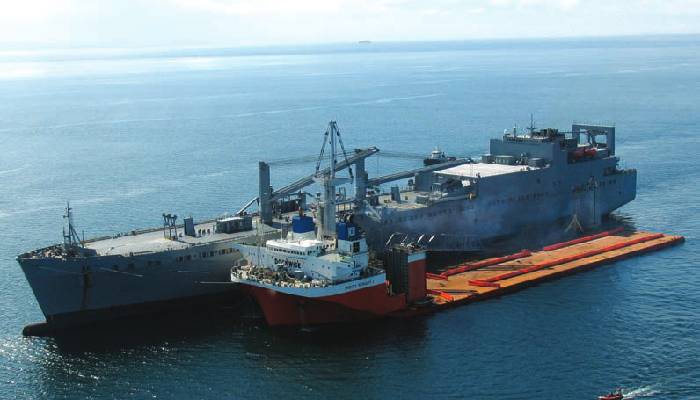
or

Bill of Lading (“BL”) is one of the mostimportant and vital documents in the maritimetrade. It is defined as the documents which bearsmany hats i.e. it is evident of receipt of goods onboard, evidence of contract of carriage of goodsand documents of title of goods specified in it. Itis a precious document but a small mistakes makeit piece of paper and leave the affected partyempty hand.Here we will discuss functions of BL andcommon mistakes which can make it Bill ofBlunders;
Reverse side of BL contains terms of theContract but it is not the contract of carriageitself but an evidence of contract of carriage butonly when holder of the BL is shipper and agreedthe terms of carriage before issuance of it. But BLbecomes the contract of carriage in the hand ofthird party which has endorsed it.
Originally BL functioned as receipt for the shipped goods. Article III (3) of the Carriage of Goods by Sea Act 1971 and rule 4 of the Hague- Visby Rules provides that the carrier is under the obligation on demand of the shipper to issue a BL which contains information such as the quantity or weight of the goods etc.
BL is considered as title of goods and depending upon the terms and conditions of issuance, it can be used as negotiable instruments. Possession of BL is considered as constructive possession of goods until it is a negotiable document of title and before delivery such goods can be transferred to the lawful holder of the BL. The claimant needs to establish his legitimacy to sue the carrier, i.e. that he has the title to sue. This title may be based on the contract of the carriage i.e. B/L (either made or acquired by the claimant) or in tort (conversion or negligence). If the carrier fails to deliver the goods to which the claimant has proved rights the carrier is liable to the claimant in conversation and if the carrier delivers the goods short or damaged then the carrier is liable in negligence. Moreover, if the carrier was in physical possession of the goods and was the cargo interest’s bailee he is liable in bailment. Even if liability is based on the tort or bailment it is still subject to the rules of causation, remoteness, and time limitation applicable by law but also the terms which the parties have agreed to incorporate in their contract. Under English law the Carriage of Goods by Sea Act 1992 section 2 provides that the cargo interests which has the right to sue the carrier are;
If a document is not included in the above categories then it needs to be examined whether there is another basis for the title to sue under the common law.
As discussed above, BL is a vital documents in maritime trade but some of silly mistakes can be proved to fatal for the holder of it. Further any discrepancies in it can eat the profits due to demurrage or detention arising out of refusal any constituents to act upon it. Followings errors must be avoided at the time of preparation and receipt of it;
In the present era, BL is assumed greater importance due to its characteristics and acceptability across the border but it must be prepared and issued carefully to enjoy the benefits of it. Silly mistakes must be avoid to convert this document as documents of sorrow or BILL OF BLUNDERS.
Pradeep K Jain is the Managing Partner at Singhania & Co., Mumbai Office, and an expert in Maritime and Corporate Law.

Lex Witness Bureau

Lex Witness Bureau

For over 10 years, since its inception in 2009 as a monthly, Lex Witness has become India’s most credible platform for the legal luminaries to opine, comment and share their views. more...
Connect Us:


The Grand Masters - A Corporate Counsel Legal Best Practices Summit Series
www.grandmasters.in | 8 Years & Counting
The Real Estate & Construction Legal Summit
www.rcls.in | 8 Years & Counting
The Information Technology Legal Summit
www.itlegalsummit.com | 8 Years & Counting
The Banking & Finance Legal Summit
www.bfls.in | 8 Years & Counting
The Media, Advertising and Entertainment Legal Summit
www.maels.in | 8 Years & Counting
The Pharma Legal & Compliance Summit
www.plcs.co.in | 8 Years & Counting
We at Lex Witness strategically assist firms in reaching out to the relevant audience sets through various knowledge sharing initiatives. Here are some more info decks for you to know us better.
Copyright © 2020 Lex Witness - India's 1st Magazine on Legal & Corporate Affairs Rights of Admission Reserved